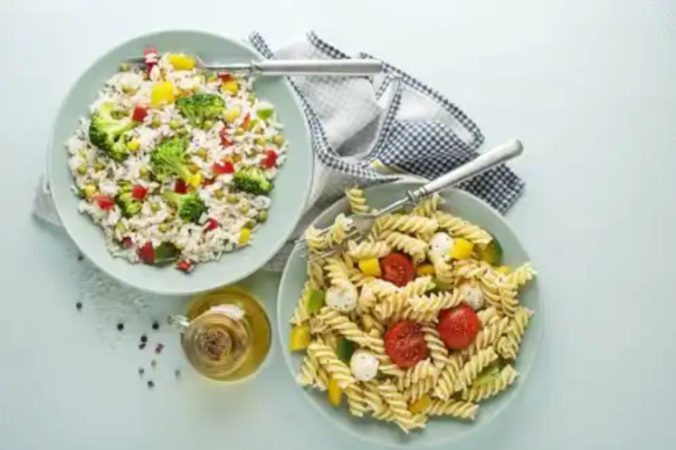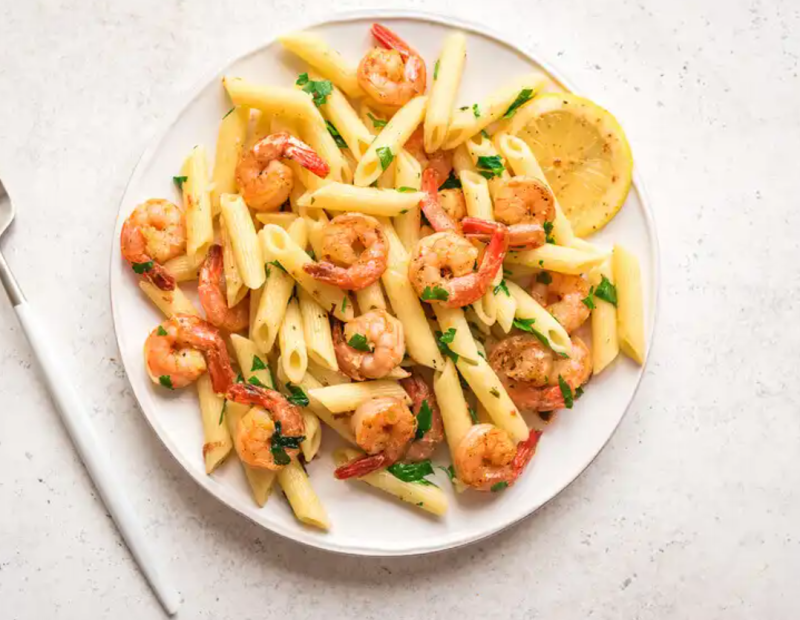
A widespread belief in Nutrition is that eating pasta or rice at night is counterproductive, either because it makes you fat or is terrible for your health. The truth is that these foods can be consumed at any time of the day, but it must be done efficiently.
The first thing that must be considered is that these products are fundamentally energetic. Therefore, its function is to provide energy or help the body recover after an effort. So, if possible, they should be used for this purpose, leaving aside their taste.
When can you eat pasta and rice at night?
If you eat low amounts of carbohydrates during the day and exercise (especially in the afternoon), the night is an excellent time to consume these foods. Its primary function will be recovery. In this way, they will help replenish muscle and liver glycogen, according to research published in the journal Current Molecular Medicine.
If this is not the case, and if you are going to return to strenuous exercise the following day, the risk of muscle injury increases. Therefore, it is essential to ensure that circulating glucose and muscle glycogen levels are adequate before high-intensity exercise.
However, eliminating carbohydrates from dinner and exercising on an empty stomach may be a possible solution if the idea is to lose weight. But if this strategy is carried out, morning exercise should be low intensity to minimize risks.

Eating pasta or rice at night has an energetic function and is aimed, above all, at athletes of an anaerobic nature. These individuals will greatly benefit from consuming these foods, and they will be a fundamental part of improving their performance.
It is necessary to carry out large carbohydrate intakes when carrying out a glycogen load before a competition. In these situations, muscle and liver stores are first emptied for 24-48 hours to supersaturate the reserves later and take advantage of the availability of these nutrients in physical activity. This is stated by an article published in Nutrition Today magazine.
These strategies are typical of strength sports, sports by weight categories, or anaerobic resistance. In addition, they involve the consumption of rice and pasta in large quantities, even at dinner.When should you not eat pasta and rice at night?
In the case of sedentary people who do not exercise regularly, carbohydrates at night are usually not very functional. Perhaps they make more sense in the first meals of the day, significantly reducing appetite.
However, when night falls, it is better to avoid them and resort to protein foods and vegetables. Dishes with volume and low energy density that allow you to go to bed without appetite and rest adequately but that do not provide glucose that is not going to be used or stored in the form of glycogen.
In this way, and according to research carried out in the journal Nutrients, eating an early and light dinner is an effective strategy to promote weight loss.
As the years progress, carbohydrates become less and less necessary. On the contrary, protein demands increase to prevent muscle damage and destruction.
For this reason, pasta and rice, at night and any time of the day, become secondary or residual foods in the diet, behind proteins and fats.
And the people with diabetes?
In this case, it is necessary to differentiate type 1 from type 2. In the case of the former, it is essential to resort to a carbohydrate ration at night to control the glucose curve.
However, in the latter’s case, it may be positive to remove carbohydrates from dinner and even perform certain fasts. In this way, body weight will be reduced, and glucose control will be improved, resulting in symptomatic improvement of the disease and a reduction in associated complications.
You can eat pasta and rice at night in moderation.
You can eat pasta and rice at night as long as the object of this intake is related to sports practice. For sedentary people or individuals who intend to lose weight, it is best to reduce carbohydrate intake as much as possible.
The simplest thing in these cases is not to eat them at night since it is less likely to feel hungry sleeping and, therefore, the caloric reduction will be more bearable. Keep that in mind!